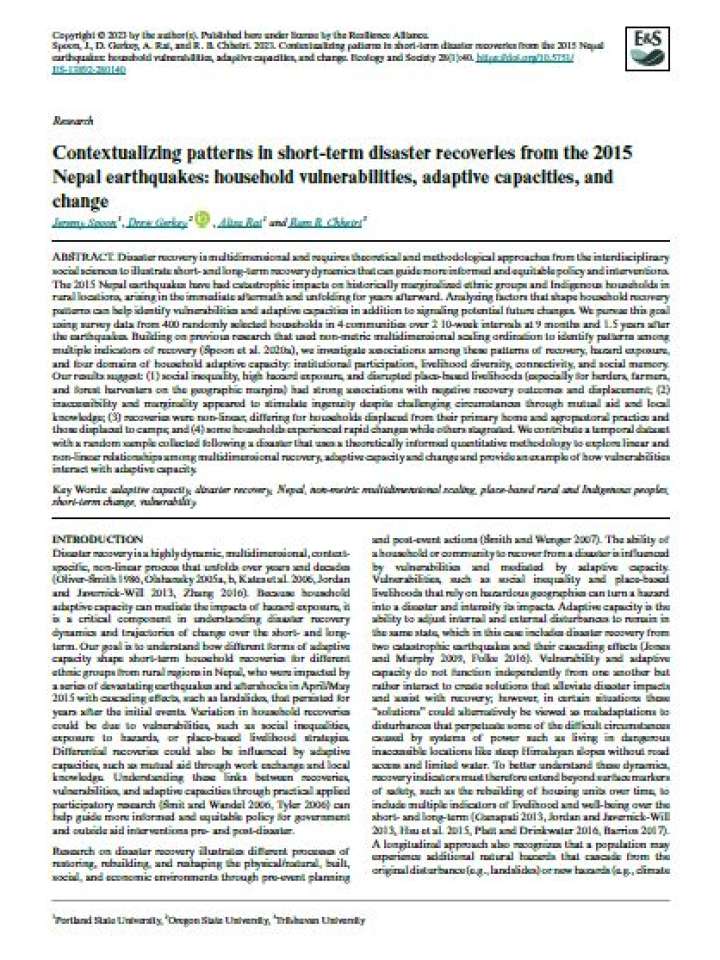Contextualizing patterns in short-term disaster recoveries from the 2015 Nepal earthquakes: household vulnerabilities, adaptive capacities, and change
This paper is analyzing factors that shape household recovery patterns can help identify vulnerabilities and adaptive capacities in addition to signaling potential future changes. The authors used survey data from 400 randomly selected households in 4 communities over 2 10-week intervals at 9 months and 1.5 years after the earthquakes. Building on previous research that used non-metric multidimensional scaling ordination to identify patterns among multiple indicators of recovery (Spoon et al. 2020a), we investigate associations among these patterns of recovery, hazard exposure, and four domains of household adaptive capacity: institutional participation, livelihood diversity, connectivity, and social memory.
The results suggest: (1) social inequality, high hazard exposure, and disrupted place-based livelihoods (especially for herders, farmers, and forest harvesters on the geographic margins) had strong associations with negative recovery outcomes and displacement; (2) inaccessibility and marginality appeared to stimulate ingenuity despite challenging circumstances through mutual aid and local knowledge; (3) recoveries were non-linear, differing for households displaced from their primary home and agropastoral practice and those displaced to camps; and (4) some households experienced rapid changes while others stagnated. We contribute a temporal dataset with a random sample collected following a disaster that uses a theoretically informed quantitative methodology to explore linear and non-linear relationships among multidimensional recovery, adaptive capacity and change and provide an example of how vulnerabilities interact with adaptive capacity.
Explore further
